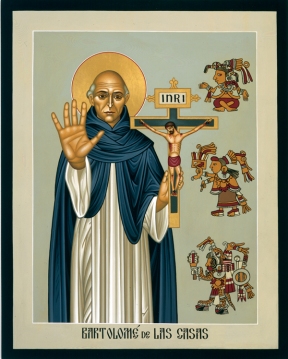The following was written by Joshua for the service of worship and prayers held at Grace and Main Fellowship on July 29, 2012.
Worship on the Ninth Sunday after Pentecost – July 29, 2012
Preparing and Setting the Altar
Be present among us, Lord. Fill this place with your Spirit.
Lighting of the Christ Candle
Sharing our Stories
Lord Jesus Christ, Son of God, have mercy on us—sinners that we are—and hear these ours prayers:
Glory to the Father, and to the Son, and to the Holy Spirit, as it was in the beginning, is now, and will be forever. Amen.
As we learn from our Lord who lived, died, and was raised for us, let us sing.
Singing
The Lord is just in all his ways, and kind in all his doings.
Psalm 145:10-18
All your works shall give thanks to you, O Lord, and all your faithful shall bless you.
They shall speak of the glory of your kingdom, and tell of your power,
to make known to all people your mighty deeds, and the glorious splendor of your kingdom.
Your kingdom is an everlasting kingdom, and your dominion endures throughout all generations. The Lord is faithful in all his words, and gracious in all his deeds.
The Lord upholds all who are falling, and raises up all who are bowed down.
The eyes of all look to you, and you give them their food in due season.
You open your hand, satisfying the desire of every living thing.
The Lord is just in all his ways, and kind in all his doings.
The Lord is near to all who call on him, to all who call on him in truth.
The Lord is just in all his ways, and kind in all his doings.
2 Samuel 11:1-15
The Lord is just in all his ways, and kind in all his doings.
Ephesians 3:14-19
The Lord is just in all his ways, and kind in all his doings.We Listen and Interpret Together
Our brother, William Willimon, former preacher, professor, and current bishop of the United Methodist Church, writes in an article titled, “A Peculiarly Christian Account of Sin:” “Only Christians have a story that makes our actions comprehensible not as minor slipups, mistakes of judgment, or even as our inappropriate response to the facts of human condition but as sin , as our determined effort to live our lives as if God were not the author of our lives…Our story reads ‘autonomy.’ Yahweh’s story says ‘covenant’…David’s sin is revealed, by the prophet’s story, to be that of living as if he had no story, as if he were not already spoken for by Yahweh.”
Prayers for OthersThe Lord’s Prayer
Singing
“Now to him who by the power at work within us is able to accomplish abundantly far more than all we can ask or imagine, to him be glory in the church and in Christ Jesus to all generations, forever and ever. Amen.” [Ephesians 3:20-21]
May the peace of the Lord Christ go with you : wherever he may send you.
May he guide you through the wilderness : protect you through the storm.
May he bring you home rejoicing : at the wonders he has shown you.
May he bring you home rejoicing : once again into our doors.Amen.














